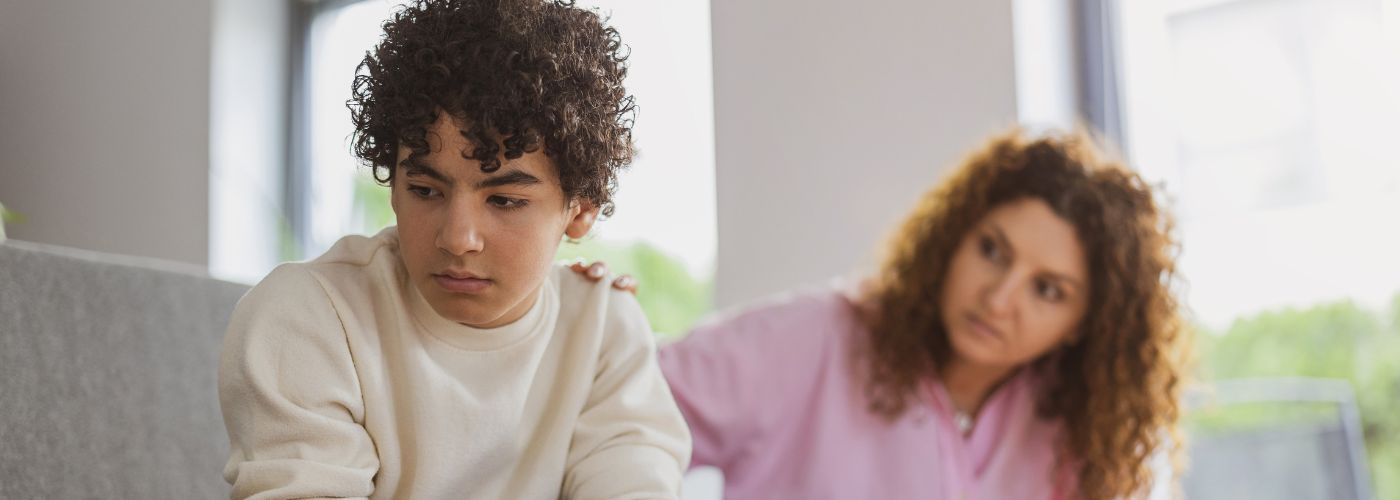In today’s world, conversations around hate crimes, including anti-Semitism, have become essential. As parents, understanding how to discuss these topics with your children is crucial to fostering empathy, respect, and inclusivity. At Mindful Healing Counseling, we aim to provide resources that empower families to approach these difficult subjects in an impactful way.
How To Approach Anti-Semitism As A Parent
Anti-semitism refers to hostility, prejudice, or discrimination against Jewish people. This form of hate can manifest in various ways, including derogatory remarks, offensive symbols, and even violence.
As parents, it’s essential to be aware of these dynamics and create an environment where children feel comfortable discussing their concerns and experiences with anti-semitism.
Encourage open dialogue by asking questions that help them articulate their thoughts, such as how the incident made them feel or whether they have encountered anti-Semitism before.
Educate your child about Jewish history and culture, emphasizing the resilience of Jewish communities in the face of adversity. This knowledge can empower your child by helping them understand not just the hate directed towards Jews but also the richness of Jewish identity and contributions to society. If needed, consider child therapy if you think your child is severely impacted by the negative effects of anti-semitism.
Identifying The Signs of Anti Semitism in Kids/Teens
1. Changes in Language and Behavior – Children and teens may start to display anti-Semitic attitudes through jokes, slurs, or by echoing hateful stereotypes. Look for any sudden changes in language, especially derogatory remarks or if they begin to distance themselves from Jewish friends or acquaintances.

2. Check Online Activity and Social Media Presence – The internet is a prevalent space for hate speech to spread. Monitor your child’s online activity to ensure they are not engaging with or following pages that promote hate speech, including anti-Semitic content. Look out for memes, videos, or shared posts that may exhibit prejudice or negative portrayals of Jewish culture.
3. Friendships and Group Dynamics – Sometimes, children adopt prejudices from friends or peers. If your child is part of a group that seems exclusive or exhibits hostility towards others, this could be a red flag. Pay attention to changes in your child’s friend groups and ask if they discuss any group activities that seem exclusionary or intolerant. If your child is in college, then these discussion can also be done on college campuses with support groups with other students of similar age.
4. Emotional Shifts and Distress – Children targeted by anti-Semitism may show signs of fear, anxiety, or withdrawal. On the other hand, children who express hatred or prejudice may exhibit anger, irritability, or detachment. Understanding these behavioral shifts can help you determine if anti-Semitism is a concern in your child’s life.
Talking To Your Child About Anti-Semitism
When addressing topics of hate and discrimination, begin by asking open-ended questions like, “Have you ever heard of anti-Semitism?” or “What do you know about hate crimes?” This approach allows children to share their understanding and experiences, providing you with a baseline to guide the conversation.
For younger children, it’s best to keep explanations simple, focusing on kindness and respect for all people. For teens, dive deeper into the historical context of anti-Semitism and how prejudice has impacted Jewish communities. Use relatable examples and encourage them to ask questions, allowing the discussion to flow naturally.

Overall children and teens learn by observing, so set an example of inclusivity and respect in your daily interactions. Encourage your child to do the same and praise them for acts of kindness and standing up for others. Positive reinforcement can instill values that counteract prejudice.
Ways To Prevent Anti-Semitism
If your child or teen has certain beliefs of anti-semitism then it’s best to introduce your children to diverse cultures, including Jewish culture, through books, movies, and local events. Understanding and appreciating different cultures can reduce prejudice and foster inclusivity.
It is crucial to educating them on discerning reliable information from misinformation, especially when it comes to stereotypes or false narratives. Media literacy helps children understand the harmful impact of hate speech and how to recognize biased or manipulative content.

Sometimes, children and teens may need additional guidance when dealing with complex emotions. Therapy can offer a safe space to process feelings, understand personal values, and learn effective coping strategies. At Mindful Healing Counseling, we offer holistic therapy solutions tailored to children and teens, helping them navigate these challenging topics and empowering them to cultivate empathy and respect for others.
Consider Therapy To Overcome Bullying & Hate
When discussing anti-Semitism with your child, it’s essential to create a safe space that encourages open dialogue. Consider incorporating role-playing scenarios where they can practice standing up against prejudice in constructive ways.
This not only empowers them but also fortifies their understanding of allyship. Additionally, if bullying or discrimination becomes a reality for them or their peers, don’t hesitate to suggest therapy as a resource for processing these experiences.
Therapy can provide a supportive environment for children to express their feelings, gain coping strategies, and develop resilience. Therapists often use strategies like cognitive-behavioral techniques to help children identify negative thought patterns and reframe them into more positive, constructive perspectives.
Through play therapy or art therapy approaches, younger children can express complex emotions that may be difficult for them to verbalize.

Related Stories
How Therapists Differentiate Social Anxiety vs Generalized Anxiety
Feeling anxious is common, but the root of that anxiety can vary significantly. Social anxiety
Jan
Impact of Social Media on Adolescent Anxiety
Many teenagers feel more anxious than ever, and social media might be playing a big
Dec
Mindful Practices To Cope With Divorce
Divorce can feel like a storm that turns your life upside down, leaving you lost
Nov